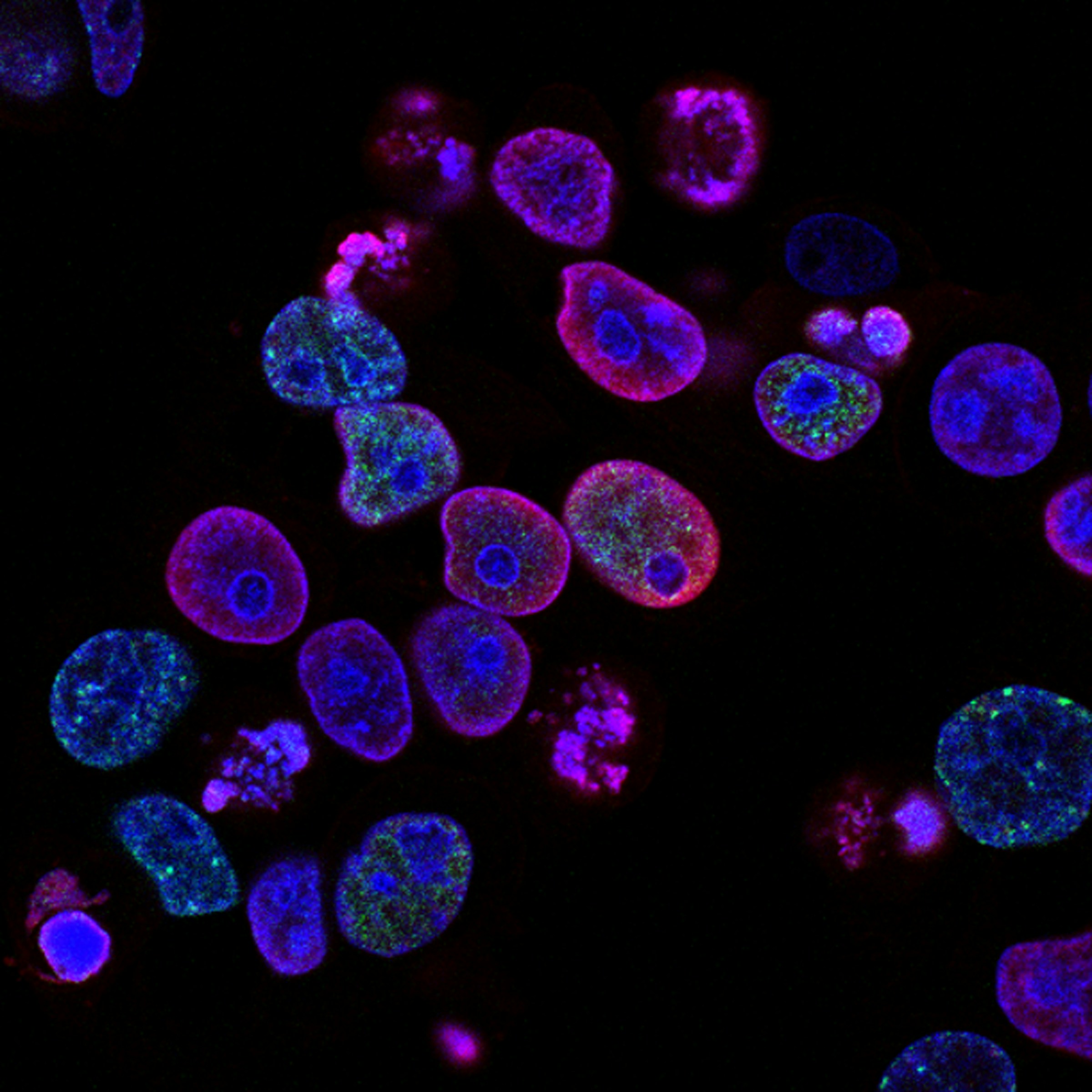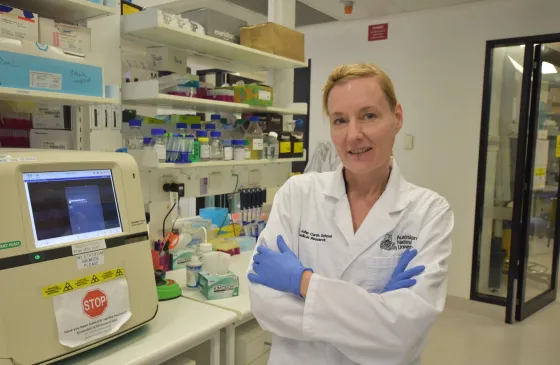
Targeting ribosome biogenesis to treat cancer
The first step in ribosome biogenesis is the transcription of ribosomal RNA genes (rDNA) that encode the ribosomal RNAs, which form the nucleic acid backbone of ribosomes and is therefore essential for protein translation and consequently cell growth and proliferation. Presented by Dr Nadine Hein.
Speakers
Event series
Content navigation
RegisterDescription
The first step in ribosome biogenesis is the transcription of ribosomal RNA genes (rDNA) that encode the ribosomal RNAs, which form the nucleic acid backbone of ribosomes and is therefore essential for protein translation and consequently cell growth and proliferation. Pol I is under normal conditions tightly regulated by tumour suppressors such as RB, p53 to keep proliferation in check. However, in cancer cells Pol I transcription is super-activated and is therefore a promising therapeutic target for cancer treatment. Selective Pol I transcription inhibitors have been developed and have shown promising anti-cancer activity.
About the speaker

Nadine received her Masters in Biology (Diplom) from the University of Hannover and completed her PhD at the RWTH Aachen in Germany under the supervision of Professor Bernhard Lüscher analysing the regulation of the MAD1 promoter. Following her PhD, she worked as a Postdoctoral Research Fellow in the Growth Control Laboratory at the PeterMac Callum Cancer Centre (PMCC) in Melbourne until 2015. Since March 2015, she held a Research Fellow and now a fellow position in the ACRF Department of Cancer Biology and Therapeutics in Professor Hannan`s Laboratory at JCSMR, ANU. Within Prof Hannan`s laboratory she leads the epigenetics and therapeutics team, analysing changes in the epigenetic landscape at rDNA loci that drive the upregulation of RNA polymerase I transcription during cancer development. The insights into the underlying mechanisms of dysregulated ribosome biogenesis, which drive and contribute to the malignant phenotype, have facilitated the development of selective RNA Polymerase I inhibitors such as CX-5461 and PMR-116. Dr Hein’s preclinical research has played a pivotal role in advancing these compounds to Phase I clinical trials.
Location
Online

